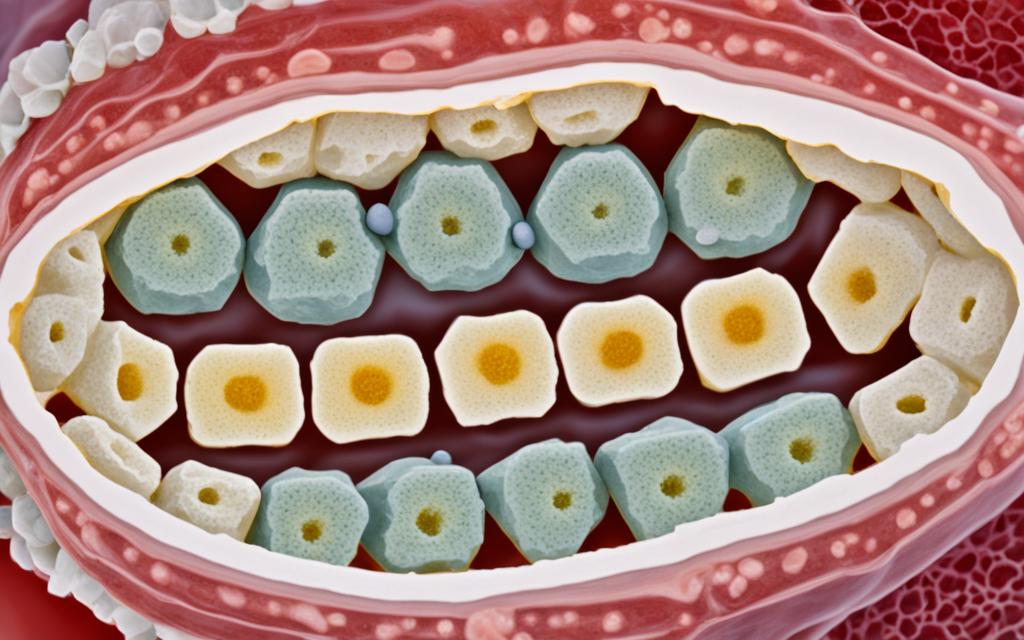Tonsil stones are small, hard formations that develop in the crevices and recesses of the tonsils. These calcified deposits can cause various unpleasant symptoms, including bad breath, difficulty swallowing, and even pain. In this comprehensive guide, you’ll learn about the causes and risk factors of tonsil stones, effective home remedies for removal, and when it’s time to see a doctor. By the end, you’ll have a better understanding of this common yet often misunderstood condition and how to manage it effectively.
What Are Tonsil Stones?
Tonsil stones, also known as tonsilliths, are small, hardened deposits that form in the nooks and crannies of the tonsils. They are made up of a combination of mucus, debris, and bacteria that accumulate in the tonsils’ crevices. Over time, these materials harden and become calcified, creating the distinctive white or yellow spots that are characteristic of tonsil stones.
The tonsil stones definition refers to these calcified formations that develop within the tonsils. They can range in size from tiny specks to larger, more visible formations, and their presence can lead to various unpleasant symptoms. Understanding what tonsil stones are and how they form is the first step in effectively managing this common condition.
Causes and Risk Factors of Tonsil Stones
Tonsil stones can form for a variety of reasons, and certain factors can increase your risk of developing them. Some of the primary causes of tonsil stones and risk factors for tonsil stones include:
- Poor Oral Hygiene: If you don’t practice good oral hygiene by brushing and flossing regularly, food particles, mucus, and bacteria can accumulate in the crevices of your tonsils, leading to the formation of tonsil stones.
- Chronic Tonsil Inflammation: Individuals with conditions like chronic tonsillitis or recurrent tonsil infections are more prone to developing tonsil stones, as the inflammation can create ideal conditions for their formation.
- Anatomical Factors: Some people have naturally deeper, more invaginated tonsils, which provide more nooks and crannies for debris to collect and harden into tonsil stones.
- Dry Mouth: A lack of saliva production can contribute to the buildup of mucus and bacteria in the tonsils, increasing the likelihood of tonsil stone formation.
- Smoking and Alcohol Consumption: These habits can dry out the mouth and throat, reducing saliva flow and making you more susceptible to tonsil stone development.
Understanding the various causes of tonsil stones and risk factors for tonsil stones can help you take proactive steps to prevent their formation and manage this common condition effectively.
| Causes of Tonsil Stones | Risk Factors for Tonsil Stones |
|---|---|
| Poor oral hygiene | Chronic tonsil inflammation |
| Chronic tonsil inflammation | Anatomical factors (deep tonsil crypts) |
| Anatomical factors (deep tonsil crypts) | Dry mouth |
| Dry mouth | Smoking and alcohol consumption |
| Smoking and alcohol consumption | – |
Symptoms and Complications of Tonsil Stones
Tonsil stones, if left untreated, can lead to a variety of uncomfortable tonsil stones symptoms and potential tonsil stones complications. Some of the most common symptoms include:
- Bad breath (halitosis) due to the buildup of bacteria and debris in the tonsils
- Difficulty swallowing or a feeling of something stuck in the throat
- Persistent sore throat or discomfort in the throat area
- White or yellow spots on the tonsils that may be visible to the naked eye
- Swollen or inflamed tonsils
- Coughing or gagging, especially when trying to swallow
In more severe cases, tonsil stones complications can arise, such as recurrent tonsil infections (tonsillitis), obstructed breathing, and even the development of abscesses around the tonsils. These complications may require medical intervention, including the potential need for tonsil removal surgery (tonsillectomy).
It’s important to address tonsil stones promptly to alleviate symptoms and prevent further complications. Ignoring the issue can lead to ongoing discomfort, increased risk of infections, and potential long-term health consequences.
Home Remedies for Tonsil Stone Removal
If you’re dealing with home remedies for tonsil stones, there are several effective techniques you can try to remove them and alleviate your symptoms. These how to remove tonsil stones at home methods are safe, affordable, and can provide relief without the need for medical intervention.
One of the most popular home remedies is to use a cotton swab or a soft-bristled toothbrush to gently dislodge and remove the tonsil stones. Carefully insert the swab or toothbrush into your throat, targeting the affected areas, and apply gentle pressure to loosen the stones. Be cautious and avoid pushing too hard, as this could irritate your tonsils.
Another effective option is to use a saltwater gargle. Mix a teaspoon of salt in a glass of warm water and gargle the solution several times a day. The saltwater can help to break down the tonsil stones and reduce any accompanying inflammation or discomfort.
For a more targeted approach, you can try using a water pick or a small, handheld device designed specifically for tonsil stone removal. These tools allow you to direct a stream of water directly onto the affected areas, helping to dislodge and flush out the stones.
If you’re looking for a more natural remedy, consider using essential oils. Certain oils, such as tea tree oil or peppermint oil, have antimicrobial properties that can help to reduce the bacteria that contribute to tonsil stone formation. Dilute a few drops of the oil in a carrier oil, such as coconut oil, and gently apply it to the affected areas with a cotton swab.
Remember, while these home remedies for tonsil stones can be effective, it’s important to maintain good oral hygiene and see a healthcare professional if the stones persist or cause severe discomfort. With the right approach, you can successfully manage how to remove tonsil stones at home and regain your confidence and comfort.
When to See a Doctor for Tonsil Stones
In most cases, you can effectively manage tonsil stones at home using the remedies we discussed. However, there are certain situations where it’s best to seek medical attention. If your tonsil stones are causing severe pain, difficulty swallowing, or persistent bad breath that doesn’t improve with home treatment, it’s a good idea to make an appointment with your doctor or an ear, nose, and throat (ENT) specialist.
Additionally, if you notice that your tonsil stones are recurring frequently or if they are accompanied by other concerning symptoms like fever, swollen lymph nodes, or difficulty breathing, it’s crucial to consult a healthcare professional. In some cases, tonsil stones can lead to complications like tonsil infections or abscesses, which may require more specialized treatment.
Your doctor can examine your tonsils, determine the severity of your condition, and recommend the appropriate course of action. In some cases, they may suggest a simple in-office procedure to remove stubborn tonsil stones that don’t respond to home remedies. In more severe or chronic cases, they may recommend tonsil removal surgery (tonsillectomy) as a long-term solution.










